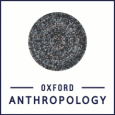Dr Philip Kreager

Philip Kreager is Senior Research Fellow in Human Sciences at Somerville College; Tutor and Lecturer in Demography in the Institute of Human Sciences; and Director, Fertility and Reproduction Studies Group and Research Associate, School of Anthropology, Oxford. He is currently Sanofi Chair, Centre Virchow-Villermé, at the University of Paris-Descartes. He is also a Research Associate of the Department of Sociology in Oxford, Senior Research Fellow, Oxford Institute of Ageing, and Honorary Professor, Institute of Ageing, University of Indonesia.
His current research, with Professor Kevin Baird of the Oxford-Eijkman Institute in Jakarta, is Determinants of treatment-seeking behaviour and equality of access to early detection and treatment averting severe and fatal malaria in rural, impoverished settings of Nusa Tenggara Timur, Indonesia, a medical and anthropological demographic study of social structural and other impediments to malarial treatment, under the Wellcome-ISSF funding scheme. From September 2015-2018 he will be co-investigator with Professor Mark Harrison and others on a Wellcome Trust project in the history of medicine, Malaria and the Dilemmas of Development. In 2011-12 he was, with Giang Thanh Long, Sri Moertiningsih Adioetomo, P. Loyd-Sherlock, chief consultant to the National Team for Accelerating Poverty Reduction, Office of the Vice-President, Government of Indonesia (TNP2K). During 1999-2007 he was Director of Ageing in Indonesia, a multi-site longitudinal study of ageing in three communities, supported by the Welcome Trust.
Research Interests
-
Anthropological Demography: Comparative demographic systems with particular reference to the construction of collective identity, family and kin systems, age and social structure. Development of combined qualitative and quantitative methodologies.
-
Population Ageing: Understanding the ageing process as part of adaptive mechanisms characteristic of local cultures and social structures. Comparative analysis of Asian and European family systems, with particular reference to Indonesia: networks, socio-economic strata, the role of Islam and civil society, childlessness, migration, gender.
-
History of Population Theory and Analysis: The formation of population concepts, models and measures before 1800 in light of contemporaneous political, social and scientific change. Transformation of early modern population thinking in the 19th and early 20th century under the rise of the nation-state. Implications of Darwinian population thinking for demography and the Human Sciences.
Recent Publications (since 2008)
‘What Graunt Did, or The Emergence of Population’ (in press). In N. Hopwood, L. Kassell, and R. Fleming, eds., Reproduction: From Antiquity to the Present, Cambridge: Cambridge University Press.
‘Population – A Long View’ (2015, in press) Population Studies.
‘Population and the Making of the Human Sciences: A Historical Outline’ (2015), in P. Kreager, B. Winney, S. Ulijaszek and C. Capelli, eds., Population in the Human Sciences: Concepts, Models, Evidence. Oxford: Oxford University Press.
(with B. Winney, S. Ulijaszek and C. Capelli) (2015) ‘Introduction’, in P. Kreager, B. Winney, S. Ulijaszek and C. Capelli, eds., Population in the Human Sciences: Concepts, Models, Evidence. Oxford: Oxford University Press.
(with E. Schröder-Butterfill) (2015) ‘Differential Impacts of Migration on the Family Networks of Older People in Indonesia: A Comparative Analysis’, In.Lan Anh Hoang and Brenda Yeoh, eds. Transnational Labour Migration, Remittances and the Changing Family in Asia. London: Palgrave MacMillan.
‘On the History of Malthusian Thought: A Review Essay’ (2014) Population and Development Review 40,4:731-742
(with E. Schröder-Butterfill) (2014) ‘Cultural Variations in Daughter Preference in Rural Indonesia’, Gender and Ageing: Southeast Asian Perspectives, T. Devasahayam, ed., Singapore: Institute of Southeast Asian Studies, pp. 150-173.
Humanities Graduates and the British Economy: The Hidden Impact (2013), Oxford University. Also available at: www.torch.ox.ac.uk/graduateimpact
(with Giang Thanh Long, Sri Moertiningsih Adioetomo, P. Loyd-Sherlock) (2012), Social Assistance Needs of Poor and Vulnerable Older People in Indonesia. Jakarta: Government of Indonesia and Help Age International.
‘The Challenge of Compositional Demography’ (2011), Asian Population Studies 7, 3:85-88.
(with Elisabeth Schröder-Butterfill) (2010) ‘Age-Structural Transition in Indonesia: A Comparison of Macro- and Micro-Level Evidence’, Asian Population Studies 6:1,25-45.
‘Darwin and Lotka: Two Concepts of Population’ (2009) Demographic Research 21: 16, 469-502.
‘Ageing, Finance and Civil Society: Notes for an Agenda’, in E. N. Arifin and A. Ananta, eds, Older Persons in Southeast Asia, Institute of Southeast Asian Studies, Singapore, 2009, pp. 361-91.
‘Aristotle and Open Population Thinking’ (2008) Population and Development Review 34:4, 599-629.
(with Elisabeth Schröder-Butterfill) (2008) ‘Indonesia Against the Trend? Ageing and Inter-Generational Wealth Flows in Two Indonesian Communities’, Special Issue on Strong Family Ties, Demographic Research 19:52, 1781-1810.
(with E. Hogervorst, T. Sadjimim, A. Yesufu, and T. B. Raharjdo) (2008) ‘High Tofu Intake is Associated with Worse Memory in Elderly Indonesian Men and Women’, Dementia and Geriatric Cognitive Disorders 26:50-57.
(with E. Indrizal and E. Schröder-Butterfill), (2008) ‘Old-age vulnerability in a matrilineal society: The case of the Minangkabau of Sumatra, Indonesia’. In The Cultural Context of Aging: Worldwide Perspectives, 3rd edition, in J. Sokolovsky, ed., Praeger Publishers, Westport.
‘Population Ageing, Political Transition, and Civil Society: A Comparison of Indonesia and Poland’, (2008), in G. Sinigoj, G. Jones, K. Hirokawa, S. Linhart, and eds., The Impact of Ageing: A Common Challenge for Europe and Asia, Vienna: LIT Press, pp.149-170.



